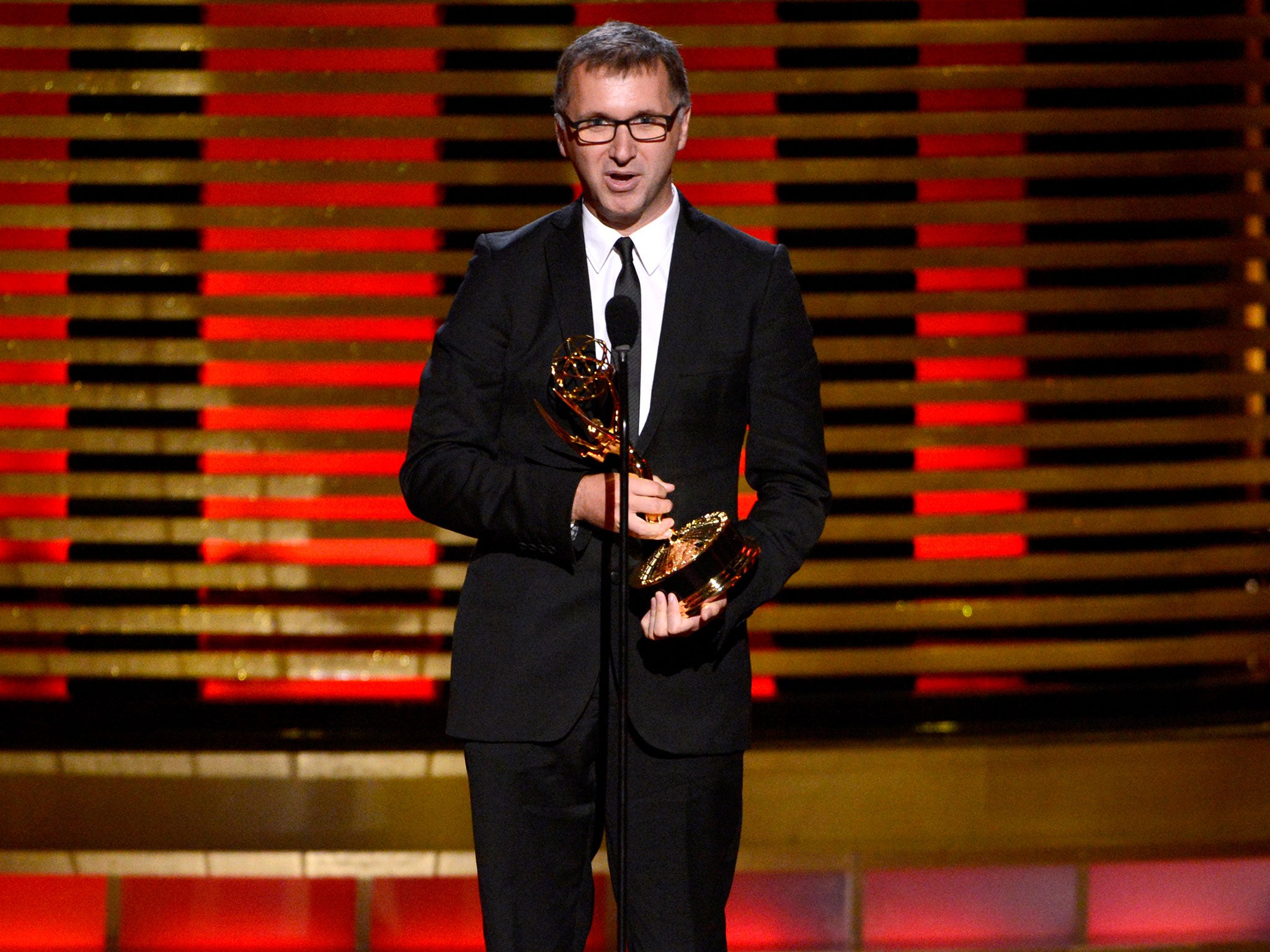Michael Price: Composer for Sherlock blames Google and YouTube for suppressing rewards songwriters receive
Price argues tech giants and record companies should disclose explicit details of the deals which set the rates on how much artists receive

The composer Michael Price, who won an Emmy for the score to the BBC hit drama Sherlock, has blamed Google and its video arm YouTube for suppressing the rewards songwriters receive for their work.
Price, who has worked on scores for films ranging from The Lord of the Rings to Quantum of Solace and The Inbetweeners, said YouTube’s approach was having a “gravitational pull” which reduced payments across the wider and rapidly expanding music-streaming market.
“YouTube are effectively paying incredibly low rates and are not a willing partner to negotiate licences and that pulls down the rates from someone like Spotify, which has to compete in their free service with YouTube,” he told The Independent on Sunday.
“The value from the music we create is being sucked out into the companies that aggregate it, [but] YouTube … are not happy to set adequate streaming rates. There is a huge shift of value from artists to tech companies.”
Price said he was a supporter of licensed streaming services, but called for a new era of “transparency” in which tech giants and record companies disclose explicit details of the deals which set the rates on how much artists and songwriters receive. His comments follow the recent launches of the Amazon Prime Music and Apple Music streaming services, and come in the wake of claims by US musician David Byrne that record companies are siphoning off revenues from streaming and not paying royalties to artists and writers.
Price claimed that many of their employees didn’t recognise the value of music. “People working in these tech companies are often of a generation that has never paid for music in a conventional sense. They cannot understand that the value of their service is only because people want to listen to the music on it.”
Price pointed out that, unlike successful pop and rock artists, composers were usually not able to supplement their music royalties by selling tickets for live performances. “There was a concept that free exposure for artists was good for our career – that ship sailed quite a long time ago.”
He is chair of the media executive committee of the British Academy of Songwriters, Composers and Authors, which is campaigning for a 50-50 split of streaming royalties between the creator of a piece of music and the record companies. Songwriters currently receive only 10.5 per cent.
Price is looking forward to the BBC’s Sherlock Holmes Prom at the Royal Albert Hall in London next weekend, featuring the score he wrote with fellow composer David Arnold, alongside other music connected to the detective.
But he fears quality music from less high-profile shows is being denied the chance to be recorded as an album because of low streaming rates.
“To have a CD professionally compiled and mastered might cost £1,000, and you could make that back when you could sell physical product. But with streaming and free access, it becomes unsustainable,” he said. “The effect for listeners is almost the opposite of what we all hoped for with the internet, which is extremely wide access.”
A spokesman for YouTube said: “We strongly believe composers should be benefit financially from their work and we work hard to generate online revenue for them. YouTube provides a global platform for artists to connect with fans, get discovered, promote their work and generate revenue for their music.”
YouTube’s own Music Key subscription service is set to launch later this year.
Subscribe to Independent Premium to bookmark this article
Want to bookmark your favourite articles and stories to read or reference later? Start your Independent Premium subscription today.

Join our commenting forum
Join thought-provoking conversations, follow other Independent readers and see their replies